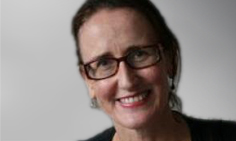THE principle of medical neutrality demands that all those who are sick or injured in times of conflict receive non-discriminatory access to care and that health professionals be allowed to give that care unimpeded.
It’s rarely that simple, though, when a country is in a state of warfare or civil unrest.
There is a long history of doctors and other health workers being persecuted for providing care or, in some cases, refusing to perform unethical acts at the behest of those in power.
Members of the Turkish Medical Association are currently facing prosecution for providing impromptu emergency care to anti-government protesters during political unrest last year, the BMJ reports.
New laws, introduced after last year’s protests, ban the provision of that kind of first aid in Turkey unless it is organised by the state.
The AMA earlier this year condemned the Turkish government’s decision to prosecute other doctors who tried to help injured protestors.
Dr Selcan Yuksel was one of two doctors put on trial, charged with “praising a criminal, insulting religious values and damaging a mosque”, after she chanced upon crowds of injured people being carried into a mosque.
“There were people under the influence of tear gas, people who had been hit by canisters, people who had broken limbs and people bleeding”, she told the court.
“I entered the mosque to help people as a doctor with training in treating trauma and general surgery…. If we hadn’t helped them, many people would have died, or people with broken body parts could have lost limbs.”
Mind you, difficult as things may be for Dr Yuksel and her colleagues, their plight seems relatively benign in comparison with the threats faced by immunisation workers in Pakistan.
Two more polio vaccinators were killed in a bomb attack in that country last week, joining an estimated 60 members of vaccination teams murdered in the past 2 years.
Polio rates have been rising in Pakistan since Islamic militants started targeting the immunisation teams after American secret services used vaccination programs as a cover during their hunt for Osama bin Laden, a move that helped fuel conspiracy theories about immunisers sterilising Muslims and spying for the West.
The organisation Physicians for Human Rights reports other recent violations of medical neutrality, from security forces in Bahrain allegedly abducting and beating doctors for treating people injured in anti-government protests, to Syrian forces blockading hospitals to prevent the wounded from getting medical attention.
Closer to home, Sydney orthopaedic surgeon Dr Munjed Al Muderis has his own story to tell about the clash between medical ethics and a repressive regime.
In 1999, he was forced to flee his birth country, Iraq, after refusing to carry out an order from the Saddam Hussein government to amputate the ears of army deserters, the Good Weekend reported recently.
He eventually made it to Christmas Island on a dilapidated fishing boat from Indonesia and, after a period of immigration detention, was able to begin practising medicine in Australia, where he has pioneered new surgical techniques to help amputees.
Dr Muderis’ story has a happy ending. However, it reflects the sad reality that when medical ethics come into conflict with forces of power it is often health professionals — and their patients — who end up suffering.
Jane McCredie is a Sydney-based science and medicine writer.

 more_vert
more_vert
After some years donating to MSF I expressed interest in working overseas in my transition to retirement. I went through a selection process including an interview and I got the distinct impression that I was rejected because I expressed too much concern for my own safety while on assignment, including the right to defend myself from armed attack.